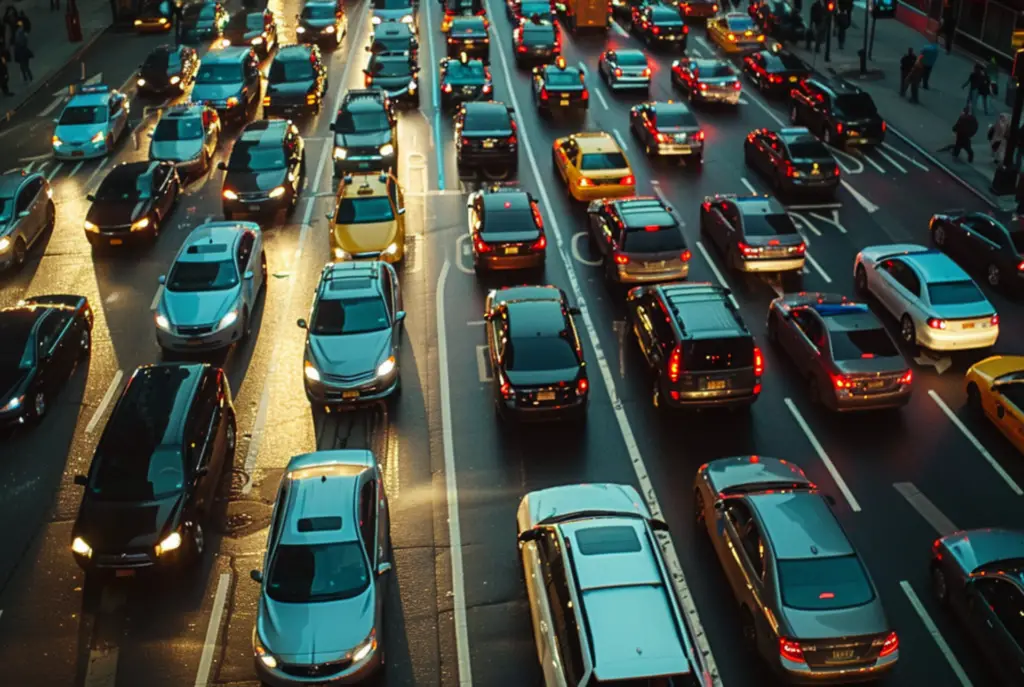
Urban logistics plays a crucial role in the efficient movement of goods and services within densely populated metropolitan areas. As more people migrate to cities, the demand for rapid and reliable delivery of products has increased exponentially.
Effective urban logistics not only supports the growth of businesses but also enhances the quality of life for urban residents by ensuring the timely availability of essential goods and services.
The efficient management of urban logistics is paramount in today’s fast-paced, interconnected world. It enables cities to function seamlessly, reduces congestion, and minimizes the environmental impact of transportation. However, urban logistics faces numerous challenges that require innovative solutions and strategic planning to overcome.
Challenges in Urban Logistics
Urban logistics is a complex and multifaceted field that must navigate a variety of obstacles to ensure the smooth flow of goods and services. From traffic congestion to infrastructure limitations, urban logistics professionals must constantly adapt to changing conditions and find creative ways to optimize their operations.
Traffic Congestion and its Impact on Urban Logistics
One of the most significant challenges in urban logistics is the issue of traffic congestion. Densely populated cities often experience heavy traffic during peak hours, which can significantly slow down the delivery of goods and services. This delay not only affects the timeliness of deliveries but also increases the cost of transportation, as vehicles spend more time on the road. Additionally, traffic congestion can contribute to increased fuel consumption and higher greenhouse gas emissions, exacerbating the environmental concerns in urban logistics.
Infrastructure Limitations in Urban Areas
Urban areas often face limitations in their infrastructure, which can hinder the efficiency of logistics operations. Narrow streets, limited parking spaces, and outdated transportation networks can make it challenging for delivery vehicles to navigate the city and reach their destinations. This issue is further compounded by the growing demand for e-commerce and the need for last-mile delivery, which requires more flexible and adaptable infrastructure.
Last-Mile Delivery Challenges
The final leg of the delivery process, known as the “last-mile,” is often the most complex and costly aspect of urban logistics. Navigating the dense urban environment, finding suitable drop-off locations, and ensuring the timely delivery of goods can be a significant challenge. Additionally, the rise of e-commerce has led to an increase in small, frequent deliveries, further complicating the last-mile logistics.
Environmental Concerns in Urban Logistics
The environmental impact of urban logistics is a growing concern, as the transportation of goods and services contributes to air pollution, noise pollution, and greenhouse gas emissions. Policymakers and logistics providers are under increasing pressure to find sustainable solutions that minimize the environmental footprint of urban logistics operations.
Technological Solutions for Urban Logistics Challenges
In response to the various challenges faced by urban logistics, technological advancements have emerged as a promising solution. From automation and data analytics to smart city infrastructure and alternative delivery methods, technology is transforming the way urban logistics operations are conducted.
Automation and Data Analytics
The integration of automation and data analytics in urban logistics can significantly improve efficiency and reduce costs. Automated systems, such as autonomous delivery vehicles and drones, can help navigate the urban landscape more efficiently, while data analytics can provide valuable insights into traffic patterns, delivery routes, and consumer behavior, enabling logistics providers to optimize their operations.
Smart City Infrastructure
The development of smart city infrastructure, which includes intelligent transportation systems, connected infrastructure, and real-time data sharing, can greatly enhance the efficiency of urban logistics. By providing real-time information on traffic conditions, available parking spaces, and delivery routes, smart city infrastructure can help logistics providers make more informed decisions and reduce the impact of urban congestion.
Alternative Delivery Methods
To address the last-mile delivery challenges, logistics providers are exploring alternative delivery methods, such as micro-fulfillment centers, parcel lockers, and crowd-sourced delivery services. These solutions aim to bring goods closer to the end-consumer, reducing the distance and time required for the final leg of the delivery process.
Strategies to Overcome Hurdles in Urban Logistics
Overcoming the challenges in urban logistics requires a multifaceted approach that combines technological advancements, policy initiatives, and collaborative efforts among various stakeholders.
Collaboration and Partnerships
Effective collaboration and partnerships among logistics providers, policymakers, urban planners, and technology companies are essential in addressing the complexities of urban logistics. By working together, these stakeholders can develop comprehensive solutions that address the unique needs of each urban environment.
Regulatory and Policy Frameworks
Policymakers play a crucial role in creating regulatory and policy frameworks that support the development of sustainable and efficient urban logistics. This may include the implementation of congestion pricing, the designation of delivery zones, and the promotion of alternative transportation modes, such as electric vehicles and cargo bikes.
Sustainable and Innovative Logistics Practices
Logistics providers must continuously strive to adopt sustainable and innovative practices to minimize the environmental impact of their operations. This may include the use of alternative fuel vehicles, the implementation of reverse logistics, and the exploration of collaborative delivery models that reduce the number of individual deliveries.To learn more about how your business can overcome the challenges in urban logistics and stay ahead of the curve, contact our team of experts today. We can help you develop a customized strategy that leverages the latest technologies and best practices to optimize your urban logistics operations.
Conclusion
Urban logistics is a complex and multifaceted field that faces a variety of challenges, from traffic congestion and infrastructure limitations to environmental concerns and last-mile delivery hurdles. However, with the advent of technological solutions and the adoption of strategic approaches, logistics providers and policymakers can work together to overcome these obstacles and create more efficient, sustainable, and resilient urban logistics systems.
By embracing innovation, fostering collaboration, and implementing comprehensive policy frameworks, cities can unlock the full potential of urban logistics and enhance the quality of life for their residents. As the demand for rapid and reliable delivery of goods and services continues to grow, the importance of addressing the challenges in urban logistics will only become more critical.